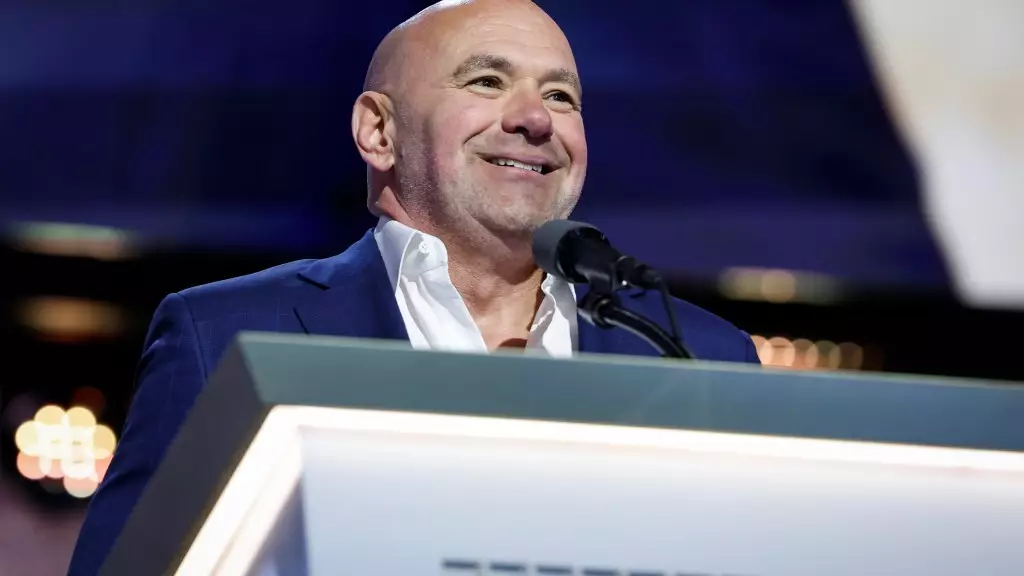In a notable turn of events, a fresh settlement has come to light in one of the ongoing antitrust lawsuits facing the Ultimate Fighting Championship (UFC). This development, eliciting mixed emotions among fighters and fans alike, marks a significant chapter in the intersection of sports law and the combat sports industry. On a recent Thursday, TKO—a legal representative of the plaintiffs—announced a proposed $375 million settlement in the Le vs. Zuffa case. This amount now poses as a potential lifeline for a class of over 1,000 fighters, provided it gains approval from U.S. District Judge Richard Boulware of the Nevada court.
The roots of the Le vs. Zuffa lawsuit run deep into the complexities of antitrust law, specifically the Sherman Act, which prohibits monopolistic behaviors in commerce. Initiated nearly a decade ago, the lawsuits can be traced back to 2014 and 2015 when several fighters led by notable names such as Cung Le and Jon Fitch consolidated multiple class-action suits into one major litigation. Originally seeking upwards of $1.6 billion in damages, the plaintiffs have pushed against what they perceive to be oppressive business practices by the UFC. These practices allegedly stunted fighter negotiation capabilities and restricted their opportunities to compete elsewhere, nurturing a harmful monopsony environment.
The recent settlement announcement may be interpreted as a double-edged sword. While it presents an opportunity for tangible financial returns to the fighters, it also highlights the persistent difficulties encountered in challenging a corporate behemoth like the UFC. The initial settlement of $335 million was rejected by Judge Boulware due to insufficient compensation for the fighters involved, some of whom stood to receive as little as $3,000. This rejection underscores the court’s commitment to ensuring fair treatment and adequate remuneration for all plaintiffs involved.
The new settlement proposal of $375 million represents a $75 million enhancement over the initially rejected amount. Interestingly, the payout is intended to be dispersed in installments—a decision that may alleviate financial pressures over time but also raises questions about cash flow for the fighters. Lead attorney Eric Cramer expressed optimism, highlighting that the settlement could yield “immediate monetary relief,” thus ensuring each plaintiff experiences a more considerable financial return than previously anticipated.
Notably, however, this proposed agreement exclusively concerns the Le case, as the separate Johnson case still seeks broader claims including injunctive relief against the UFC’s practices. This division spells uncertainty moving forward, as there is no guarantee that Judge Boulware will endorse this latest settlement proposal. The potential for rejection looms large over the plaintiffs, demonstrating the unpredictable nature of legal battles against deeply entrenched corporate interests.
Future Implications for Fighters
The implications of this settlement extend beyond mere financial numbers. The outcome of this case could reshape the competitive landscape for MMA fighters and influence future contracts within the sport. If the UFC ultimately has to concede to greater scrutiny and compensation, it could mark a pivotal shift towards more favorable terms for fighters seeking autonomy and support in an industry often criticized for exploiting its competitors.
However, the road ahead is fraught with challenges. If the proposed settlement does not receive court approval, fighters may face a lengthy trial process, wherein a unanimous jury verdict would be vital to secure any damages. The prospect of trial introduces additional risk, leading some advocates to argue that settling now, even at a lesser amount, might guarantee some victory rather than risking total losses at trial.
The $375 million settlement proposal in the Le vs. Zuffa case signifies a critical moment for UFC fighters fighting for their rights in an industry notorious for its harsh realities. As stakeholders, both fighters and fans await the court’s decision on this settlement, the broader implications remain profound. This case not only pertains to financial restitution; it touches on the very essence of fairness and equity in professional sports, potentially setting precedents for how fighters are treated in the years to come. The advocates for change within the sport have laid down an important marker, and how this saga unfolds will continually capture the attention of fighters and fans alike.

